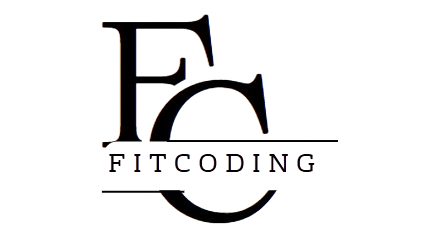In an age where digital footprints are as revealing as real-world interactions, specific search terms often capture unexpected attention. One such term is melissagstm nude. Its appearance in search logs and platforms like GitHub raises questions not only about intent but also about privacy, online behavior, and the intersections of curiosity and ethics.
This article dissects the context surrounding this keyword while addressing its emergence, implications, and the responsible ways to engage with digital content.
Understanding the Digital Trail
Every search or digital activity leaves behind a trail. Search queries like melissagstm nude may originate from a variety of sources: curiosity, confusion, or even misinformation. What matters is how such keywords are understood, addressed, and contextualized within the broader framework of internet behavior.
To comprehend what the term may represent, it’s vital to avoid jumping to conclusions and instead explore its usage and appearance across digital platforms, especially GitHub.
The Origins of the Keyword: GitHub and Online Repositories
The keyword “melissagstm nude” appears associated with GitHub, a platform known for hosting open-source code, scripts, and development frameworks. This suggests that the term may not reference explicit content at all. Instead, it could be:
- A username or handle (e.g., melissagstm) of a developer or contributor
- A placeholder or mistakenly labeled variable
- An artifact of online discourse or file naming conventions
Such occurrences often arise due to:
- Indexing errors by search engines
- Automated metadata misclassification
- User-generated content lacking context
Let’s explore the data more closely.
Potential Sources of the Keyword “melissagstm nude”
| Source Type | Description |
| GitHub Repositories | May include a username or mention in commit logs |
| Search Engine Results | Often driven by AI indexing with minimal human curation |
| Archived Files or Links | Files with misleading names that become indexed |
| Reddit or Forums | Discussions or mentions by users curious about unexplained content |
| Misidentified Media Tags | Images or text indexed incorrectly by crawlers or bots |
Navigating the Meaning Behind “melissagstm nude”
While the term itself might sound explicit, there is often no actual NSFW content tied to it. Instead, the curiosity lies in the dissonance between the phrase and its context—something commonly observed in digital mislabeling.
Some contributing factors include:
- Public curiosity mixed with algorithmic mishaps
- Virality driven by mystery, not substance
- The phenomenon of “search-baiting,” where odd titles attract attention
Understanding these factors helps reduce misinformation and allows us to view such terms more analytically.
The Human Curiosity Around Digital Identities
Names or handles like “melissagstm” can quickly gain attention if paired with controversial terms, even accidentally. This reflects an essential aspect of online behavior—how names, even unrelated to actual individuals, can become symbols or attract search interest due to suggestion alone.
This is where the human psyche plays a role. In a content-rich environment, anything that seems out of the ordinary becomes a magnet for clicks, discussions, and speculation.
Ethics and Privacy in the Digital Era
One of the biggest issues with keywords like melissagstm nude is the potential breach of privacy—especially if such a name is tied to a real person, even unintentionally. Public search behavior can inadvertently:
- Harm reputations
- Trigger unwanted attention
- Spread misinformation
Digital platforms must strike a balance between transparency and privacy, ensuring that data isn’t weaponized through careless indexing or manipulative search optimization.
Data Transparency vs. Exploitation
Information democratization is one of the pillars of the internet. But when does transparency become exploitation? This question becomes especially critical when exploring search terms that seem invasive or unethical.
Key considerations include:
- Is the content user-uploaded or public domain?
- Was it intentionally labeled that way?
- Is there real value or is it clickbait?
These questions guide the ethical consumption and interpretation of online data.
The Role of GitHub and Open Source Platforms
GitHub and similar platforms often serve as repositories of technical information, open to global collaboration. However, they are not immune to exploitation. Misleading terms or usernames can be used to:
- Seed misinformation
- Promote spam or scams
- Trick automated systems for visibility
As with any open system, moderation and community reporting play essential roles in maintaining content quality and integrity.
Online Search Behavior and Digital Culture
The rise of specific, odd-sounding queries reflects larger trends in internet culture. People often follow rabbit holes of curiosity, fueled by:
- Viral posts
- Misinformation
- Clickbait strategies
These behaviors show how easily audiences can be led toward content with no real relevance. Therefore, developing critical digital literacy becomes key.
Related Search Trends and Patterns
Search data analysis shows how a single term can spawn multiple variations and trend lines. Some related searches to melissagstm nude include:
- melissagstm github
- melissagstm project
- strange github usernames
- misleading image metadata
These terms suggest that the curiosity often revolves more around the platform and user history than actual inappropriate content.
Legal Perspectives on Digital Exposure
Legal frameworks are increasingly being developed to handle cases of digital identity misuse, defamation, and data privacy. For anyone affected by an accidental digital association:
- Defamation laws may apply if reputations are harmed
- Data removal requests can be issued to platforms
- Reporting mechanisms should be used promptly
Consulting a cyber law expert is advisable if someone feels their digital identity is being exploited or misrepresented.
Best Practices for Personal Online Safety
To protect yourself from mislabeling or inappropriate exposure online, consider these tips:
- Avoid using real names in public code repositories or forums
- Regularly audit your digital footprint via search engines
- Use unique, neutral usernames for online interactions
- Be mindful of metadata in images or files uploaded online
These practices help preserve your privacy and minimize the chances of appearing in unintended search contexts.
Community Responsibility in Handling Sensitive Content
As digital citizens, the onus lies on all of us to ensure we don’t spread, search, or share misleading or potentially harmful content. Responsible steps include:
- Avoid sharing links or names without verifying the content
- Use report tools on platforms like GitHub, Reddit, or Google
- Educate others on digital ethics and privacy
- Participate in constructive discussions instead of speculative ones
Fostering a healthy digital ecosystem starts with accountability.
Conclusion and Final Thoughts
The term melissagstm nude represents more than just an internet curiosity—it highlights the intersection of digital identity, algorithmic indexing, and public behavior. As digital platforms evolve, so must our understanding of how information is created, labeled, and interpreted.
Being aware, respectful, and responsible when engaging with search content ensures that online spaces remain safe, informative, and ethical for everyone. Instead of feeding into misleading trends, let’s aim to build a better-informed digital culture.
Frequently Asked Questions (FAQ)
What is “melissagstm nude” and why is it trending?
This keyword appears to be a mix of a GitHub username and a misleading suffix. It likely gained traction due to indexing errors or digital curiosity rather than real NSFW content.
Is there any explicit content related to the keyword?
No verified or legitimate explicit content has been identified tied to this term. Its trend likely stems from confusion or bot-generated metadata.
Why do such keywords appear on GitHub?
Open platforms sometimes host usernames or project titles that seem unusual. These names can be indexed by search engines and misinterpreted without context.
What should I do if my name appears in a misleading search?
You can request removal via Google’s search removal tools or contact the platform directly. It’s also wise to consult a legal expert if reputational harm occurs.











